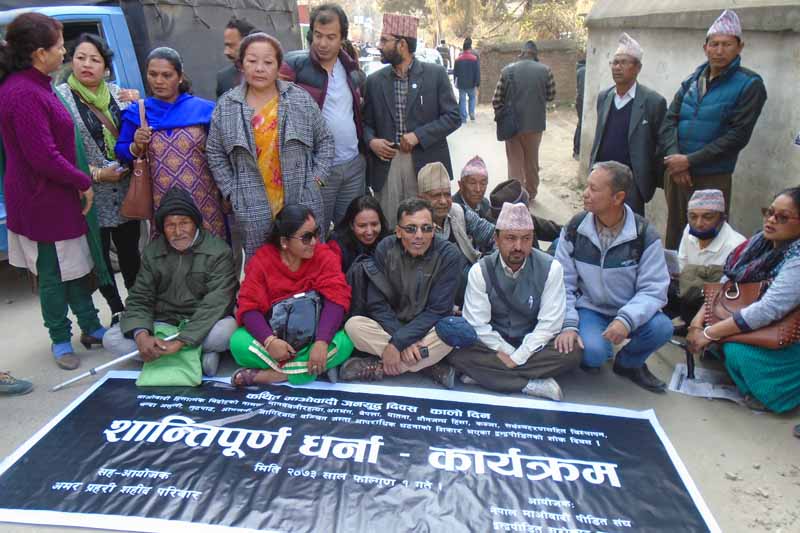Conflict victims for criminal code revision
Kathmandu, August 21
Victims of the decade-long armed conflict have demanded that the government revise the new criminal code that came into effect on August 17, claiming that it has failed to address the Supreme Court verdict in relation to enforced disappearance and was not in line with international standards.
The SC had on June 1, 2007, issued a verdict stating that enforced disappearance was a continuous crime and crime against humanity and that the government should enact laws criminalising enforced disappearances as per international standards.
Ram Kumar Bhandari, founder and director of the National Network of Families of the Disappeared and Missing, said the code was not applicable with retrospective effect and did not encompass war-era disappearances.
“This has made our case weaker,” he said, adding that it could give immunity to alleged perpetrators of human rights violations during the 10-year Maoist insurgency that lasted from 1996 to 2006. “It also does not include norms of international enforced disappearance laws.”
According to Bhandari, the provisions of the code do not address humanitarian needs of the victims, as it is more guided by legal and political perspectives.
The victims have already rejected the proposed amendment to the Enforced Disappearances Enquiry, Truth and Reconciliation Commission Act, stating that it was aimed at only symbolic prosecution of alleged perpetrators and it did not establish reparation as victims’ right.
The victims also demanded that the two transitional justice bodies — the Truth and Reconciliation Commission and the Commission of Investigation on Enforced Disappeared Persons — be reconstituted, as they had failed to fully investigate a single complaint even after three-and-a-half years of their formation.
The TRC has so far conducted preliminary investigation into 2,765 complaints out of more than 60,000, while the CIEDP has completed ‘first phase of detailed investigation’ into around 1,100 cases out of over 3,000 complaints.
TRC member Manchala Jha said they were studying the applications into which investigations had been completed and would recommend them for detailed investigation.
After completing ‘the first phase of detailed investigation’— in which ante-mortem data and information through story-telling are collected — in 39 districts, the CIEDP is mobilising teams in four more districts for the same, according to CIEDP Spokesperson Bishnu Pathak.
However, victims said what these commissions were doing were ‘very preliminary’ tasks that they should have done in the first year of their formation.
Conflict Victims Common Platform Chairman Bhagiram Chaudhary said the commission members only complained about lack of human and financial resources, but failed to optimally utilise available resources.
“Agreed that the government has not provided them with enough resources, but they could have done much more than what they have done so far even with available resources,” he said. “This proves their incompetence.”






